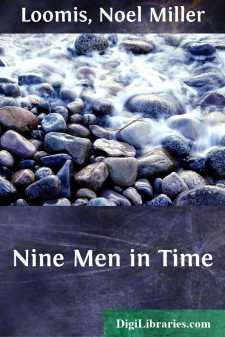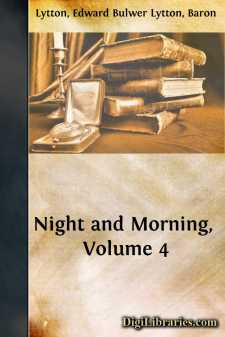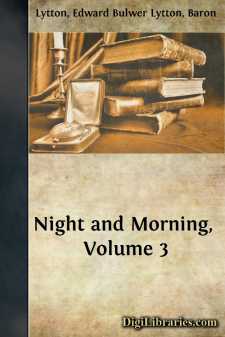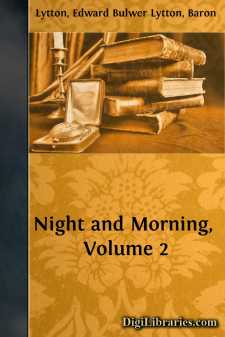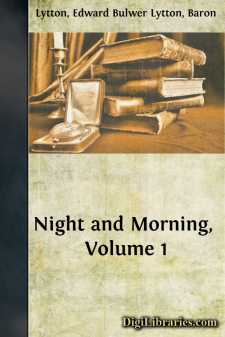Fiction
- Action & Adventure 180
- Biographical 15
- Christian 59
- Classics 6965
- Coming of Age 5
- Contemporary Women 3
- Erotica 8
- Espionage/Intrigue 12
- Fairy Tales, Folklore & Mythology 236
- Family Life 169
- Fantasy 117
- Gay 1
- General 596
- Ghost 32
- Historical 808
- Horror 43
- Humorous 160
- Jewish 25
- Legal 4
- Medical 22
- Mystery & Detective 315
- Political 49
- Psychological 41
- Religious 64
- Romance 159
- Sagas 11
- Science Fiction 730
- Sea Stories 113
- Short Stories (single author) 537
- Sports 10
- Suspense 1
- Technological 8
- Thrillers 2
- Urban Life 31
- Visionary & Metaphysical 1
- War & Military 173
- Westerns 199
Fiction Books
Sort by:
The receivers, two of them lawyers, had long faces when they sat down across from my desk in the office of the Imperial Printing Company. "Frankly, Mr. Shane," said the older one, "it is a very grave question in our minds whether we should try to continue to operate the business or whether we should close the plant and liquidate the machinery and equipment the best we can." I was...
more...
by:
Anthony Trollope
INTRODUCTION Anthony Trollope was an established novelist of great renown when Nina Balatka was published in 1866, twenty years after his first novel. Except for La Vendée, his third novel, set in France during the Revolution, all his previous works were set in England or Ireland and dealt with the upper levels of society: the nobility and the landed gentry (wealthy or impoverished), and a few...
more...
CHAPTER I Nightmare Abbey, a venerable family-mansion, in a highly picturesque state of semi-dilapidation, pleasantly situated on a strip of dry land between the sea and the fens, at the verge of the county of Lincoln, had the honour to be the seat of Christopher Glowry, Esquire. This gentleman was naturally of an atrabilarious temperament, and much troubled with those phantoms of indigestion which are...
more...
by:
Anthony Pryde
CHAPTER I "Tea is ready, Bernard," said Laura Clowes, coming in from the garden. It was five o'clock on a June afternoon, but the hall was so dark that she had to grope her way. Wanhope was a large, old-fashioned manor-house, a plain brick front unbroken except in the middle, where its corniced roof was carried down by steps to an immense gateway of weathered stone, carved with the...
more...
BACK TO BACK Mrs. Scutts, concealed behind the curtain, gazed at the cab in uneasy amazement. The cabman clambered down from the box and, opening the door, stood by with his hands extended ready for any help that might be needed. A stranger was the first to alight, and, with his back towards Mrs. Scutts, seemed to be struggling with something in the cab. He placed a dangling hand about his neck and,...
more...
CHAPTER I. "Per ambages et ministeria deorum."—PETRONTUS. [Through the mysteries and ministerings of the gods.] Mr. Roger Morton was behind his counter one drizzling, melancholy day. Mr. Roger Morton, alderman, and twice mayor of his native town, was a thriving man. He had grown portly and corpulent. The nightly potations of brandy and water, continued year after year with mechanical...
more...
CHAPTER I. "O that sweet gleam of sunshine on the lake!" WILSON'S City of the Plague If, reader, you have ever looked through a solar microscope at the monsters in a drop of water, perhaps you have wondered to yourself how things so terrible have been hitherto unknown to you—you have felt a loathing at the limpid element you hitherto deemed so...
more...
CHAPTER I. "The knight of arts and industry, And his achievements fair." THOMSON'S Castle of Indolence: Explanatory Verse to Canto II. In a popular and respectable, but not very fashionable quartier in Paris, and in the tolerably broad and effective locale of the Rue ——, there might be seen, at the time I now treat of,...
more...
CHAPTER I. "Incubo. Look to the cavalier. What ails he? . . . . . Hostess. And in such good clothes, too!" BEAUMONT AND FLETCHER: Love's Pilgrimage. "Theod. I have a brother—there my last hope!. Thus...
more...
Much has been written by critics, especially by those in Germany (the native land of criticism), upon the important question, whether to please or to instruct should be the end of Fiction—whether a moral purpose is or is not in harmony with the undidactic spirit perceptible in the higher works of the imagination. And the general result of the discussion has been in favour of those who have contended...
more...


